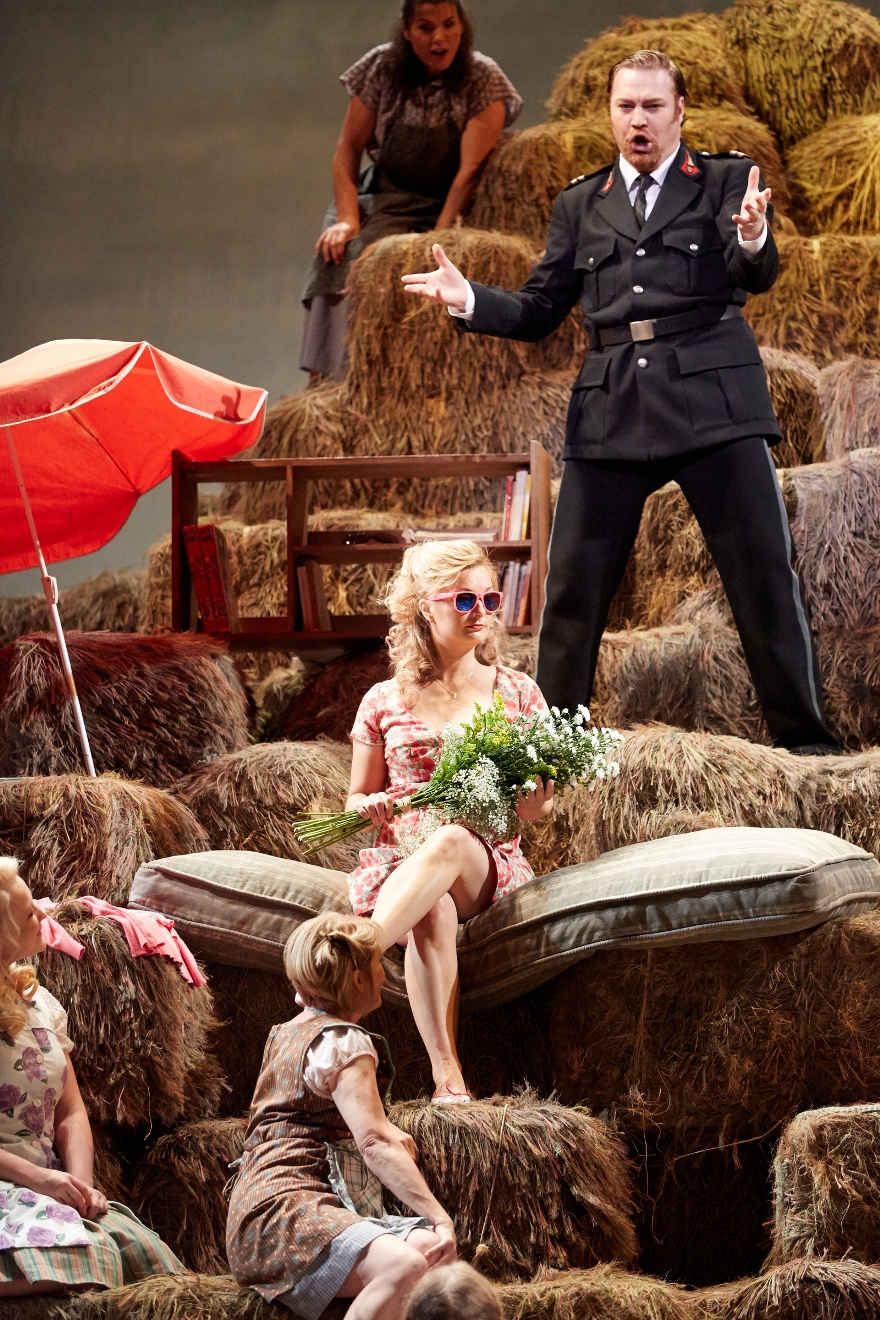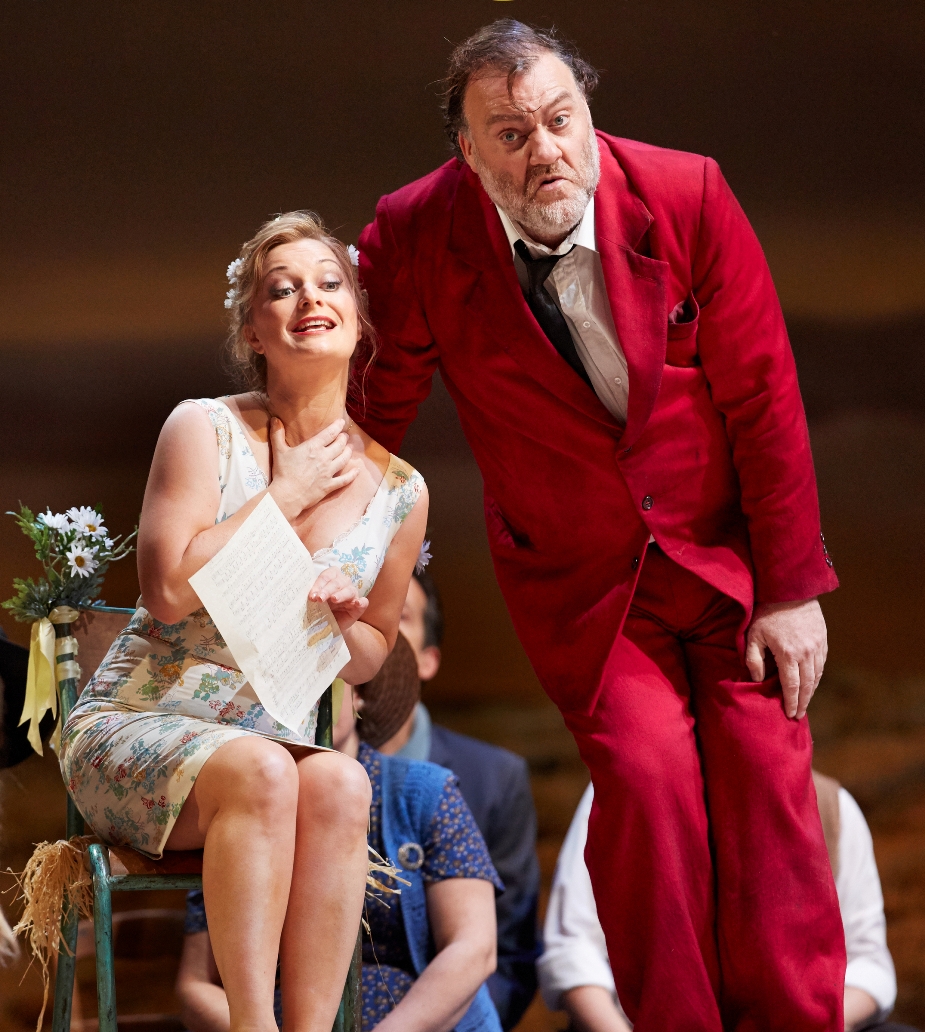“Watch out for the dog!” instructs Covent Garden’s programme for its latest revival of L’elisir d’amore. These creatures do have a way of stealing shows, but the canine who dashed across the flat Italian cornfield after Dr Dulcamara’s decrepit lorry had some impressive competition – from Vittorio Grigolo’s behind.
The Italian tenor de nos jours, as Nemorino letting his hair down under the influence in part two, was apparently proving himself a hotter mover than the audience had anticipated. Fortunately his singing more than matches his dance-floor expertise; by the time the opera reached "Una furtiva lagrima" the crowd was eating out of his hand and this most gentle and innocent of tenor arias truly stopped the show. Grigolo’s voice, fully unleashed, is a magnificent, pure-tenor animal; but its magnetism can also carry us all with him into the heart of every quiet note. It might be difficult to believe in such a starry chap as the sweetly awkward Nemorino, but with singing like that, it scarcely matters.
 Laurent Pelly’s production, dominated by giant haystacks and Dulcamara’s convertible lorry, has become a perennial favourite at Covent Garden. Throw in plenty of sunshine, bumbling motor-scooters and black-shirted soldiers, plus a strong dose of Pelly’s trademark stylisation, and Donizetti’s irresistible score cannot help but work its magic on a murky November evening.
Laurent Pelly’s production, dominated by giant haystacks and Dulcamara’s convertible lorry, has become a perennial favourite at Covent Garden. Throw in plenty of sunshine, bumbling motor-scooters and black-shirted soldiers, plus a strong dose of Pelly’s trademark stylisation, and Donizetti’s irresistible score cannot help but work its magic on a murky November evening.
Our Adina was the English soprano Lucy Crowe, making her role debut. Vocally she sailed through it, her vivid tone bright, accurate and apparently effortless; dramatically perhaps she needs to settle in a little more, letting even this slightly two-dimensional production offer her more depth of character. Pelly’s moments of excess cutesiness looked a bit uncomfortable, but those are more his responsibility than hers. Levente Molnár had even fewer dimensions to work with, in terms of character, as Belcore (pictured above left with Crowe), but gave his all nonetheless; and there was a lively solo slot for Kiandra Howarth, a Jette Parker Young Artist, as Gianetta.
The star turn for which the audience was waiting was that of Bryn Terfel, no less, as the quack Dulcamara (pictured below with Crowe), whose magic potion promises solutions to all ills, including unrequited love. The front curtain of 1950s-style Italian adverts for the substance are enormous fun – possibly more than Terfel’s “Doctor”, who emerged as gruff and offhand at first, his voice’s Wagnerian size compressing less than ideally into Donizetti’s delicacy. The second half found him warming up, allowing himself a twinkle in the eye as Adina pinged his braces; in the end his charisma wins through, as irresistible as the opera itself.

Ultimately, though, the night was Grigolo’s, despite the best efforts of all around him to rise to the challenge his presence posed. He came on last of the cast for the curtain-calls, milking the applause; one could scarcely blame him, given the reception he received, but this pattern of bowing is becoming a top-tenor trademark in some places and it is difficult not to wonder whether today’s fine sopranos, tackling equally demanding roles, might not feel a tad miffed. Still, the general consensus seemed to be that the sun shone out of his backside.















Add comment